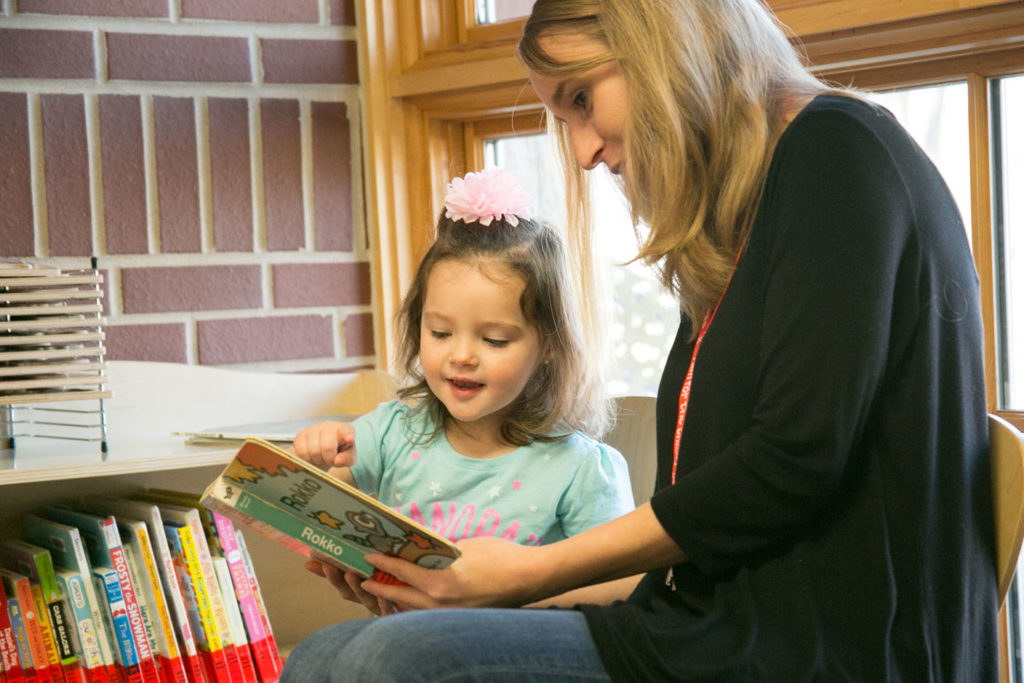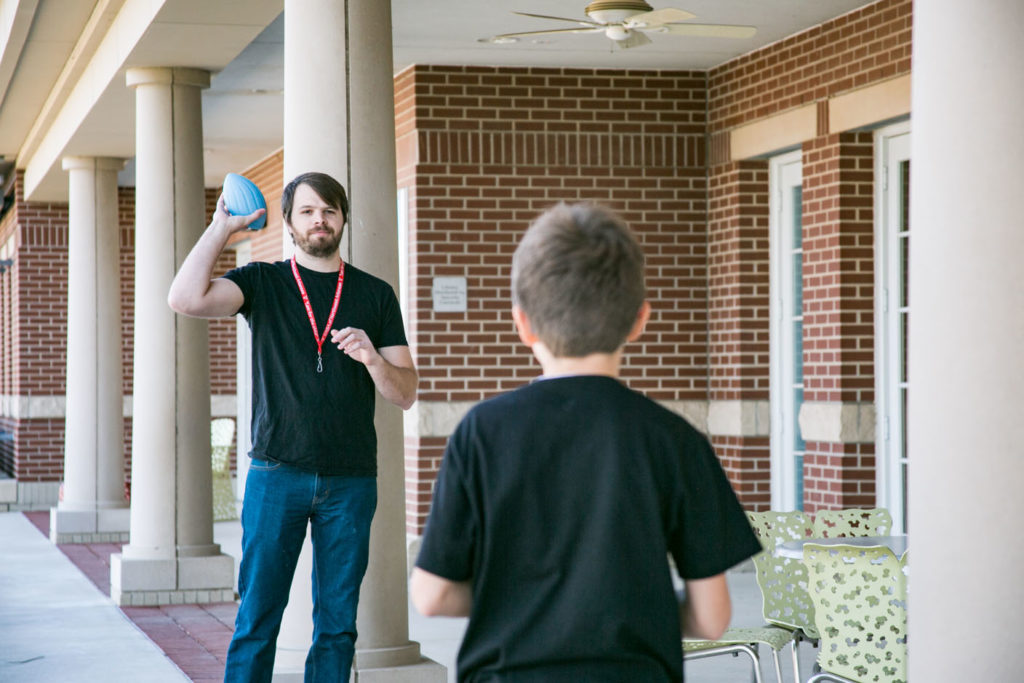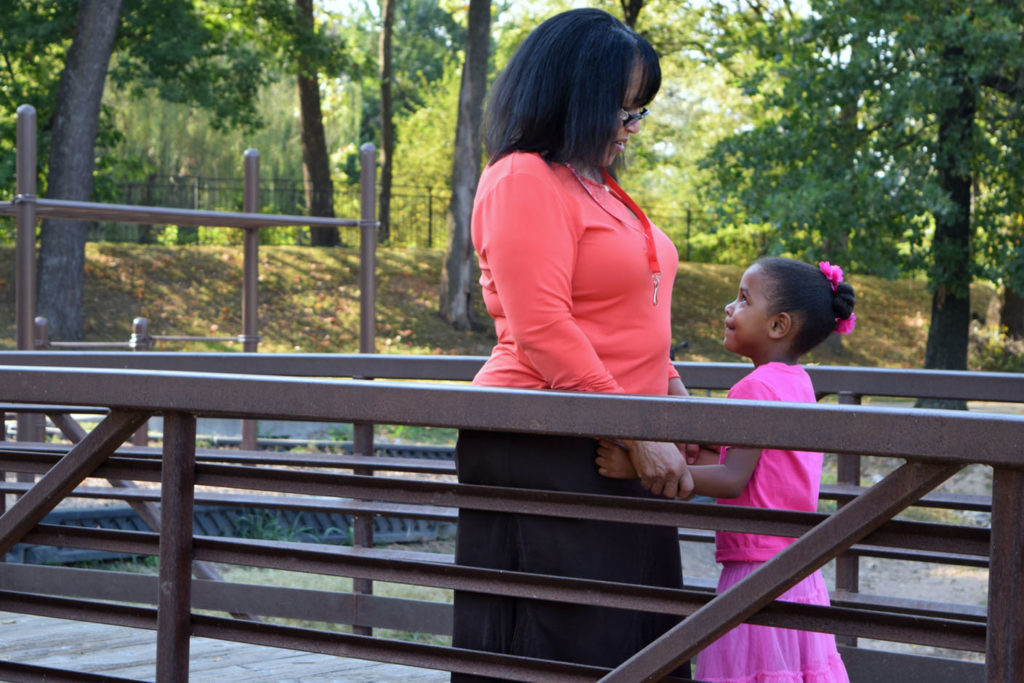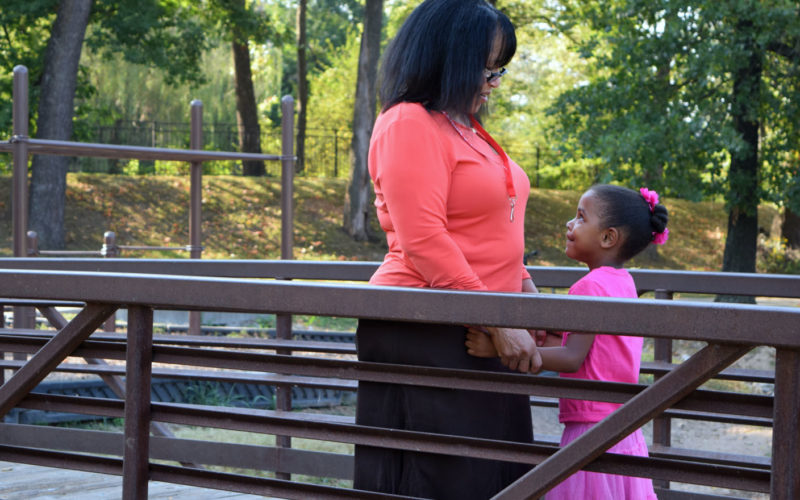BECCA MARTIN-BROWN
bmartin@nwadg.com
Listening to volunteers talk about their work as Court Appointed Special Advocates for children in Northwest Arkansas, two things are readily apparent. Volunteering doesn’t take an overwhelming commitment of time. But it does take a whole lot of heart.
CASA volunteers are the constants in the lives of children who are in foster care. It is their job to advocate for the children with whom they are matched — 979 of them from Benton, Washington, Carroll and Madison counties in 2020 — to make sure the court hears their side of the story. That might mean visiting every month with foster parents, teachers, the birth family and the Department of Human Services case worker to understand how “your” child is doing. But it also means being, as one volunteer says, “the only ones that ‘our’ child could call and rely on when their life was scary and chaotic.”

“CASA exists to provide a compassionate volunteer advocate to every child in the foster care system in Northwest Arkansas,” says Colleen Smith, director of development for the organization, which has existed here for 24 years. “These volunteers are there to serve as a voice in court, ensuring these children’s individual needs don’t fall through the cracks of an overburdened system. We want to humanize this system, provide consistency and stability, and reduce the trauma these children experience as they journey toward their forever homes.
“Unfortunately,” she adds, “when our Light of Hope event went virtual in November, we lost our largest in-person volunteer recruitment event of the year. Since then, we’ve seen a sharp decline in the number of prospective volunteers.”
So CASA has set a goal — to recruit 40 potential volunteers willing to attend a virtual information session in March.
“We need to expand our volunteer base to ensure that every child in foster care in Northwest Arkansas will continue to have their voice heard in the court system,” Smith says. “Many people know the importance of this work, but they worry they may not know enough or have enough time to serve. Our recommendation would be to take just one hour and attend an information session. Learn what we do to train and support our advocates and assess whether this commitment is something you can manage with your schedule.”
Married couple Randi and Nick Fritsche have been volunteering since April 2016.
“We had been looking for volunteer work to do together, and we were invited to a Light of Hope event,” Randi says. “This event opened our eyes to the need for more advocates for children in the foster care system. We felt that CASA was the right place to volunteer our time to help the community.”
CASA, she adds, provided all the training and information they needed, 30 hours they agree “gave us all the skills and resources to be good advocates.”
Olga Hamilton, who has been a volunteer since July 2014, already knew more than most people about kids in need, but she still needed what CASA had to offer her.
“I have a wealth of experience working with children from various socio-economic backgrounds, having taught grades three through 12 in inner city schools and working as a principal,” she says. “Even if you don’t have the extensive experiences I have, if you have a passion to help children, CASA will provide the necessary training. For me, it was the training on the legalities of dealing with children in foster care, resources available in our community and completing court reports.”
Since 2014, Hamilton has had seven cases in Benton and Washington counties plus one child placed with foster parents in Hot Springs.

“Each case, like the children involved, was unique,” she says. “The time spent on each case was impacted by the number of children in the family, number of family members involved — parents, grandparents, aunts, etc. — number of foster families, number of schools/day cares to visit, and last but not least, the level of effort taken by the parent(s) to complete court-ordered plans.
“My longest case was a little over two years and involved four siblings,” she goes on, “and my time on the case averaged six hours per month. In this case, I visited the school once per month or had a phone conference with teachers; home visits twice per month; and a check-in with foster parents once per week and more if needed. Court appearances were about every other month and depended on the plan ordered by the court.”
That makes the time commitment seem possible. But what about the commitment of the heart?
“Having worked with children for over 25 years, I had to learn not to take my job home with me because it can be emotionally draining,” Hamilton says.
But she admits “I am angered when children are placed in their situations by selfish choices made by their caregiver/parents. I get frustrated that some parents are not fighting as hard as I am for the good of their child. When a child feels he or she is to be blamed, or wonders if their mom or dad doesn’t love them, my heart is broken.”
Hamilton says then it’s up to her to “do my best to reassure them they are loved, that they are good, and that one day soon things will be better. The hardest part is if you conclude that the biological parent isn’t best for the children and furthermore are compelled to recommend to the court not to reunify the family. You question your judgment. But as an adoptive parent, I realize that a happy, healthy family environment is the best alternative when the one they are born into can’t provide that.”
The Fritsches have only had two cases since 2016. The first one, which was one child, lasted a little over a year. The second has continued for a little over three years.
“We do get to know them and care for them during the duration of the case,” Randi says. “After our first case was closed, we kept in touch, and they eventually moved out of state. We will always care for and remember that child, but we know that they are in a good home and that rough chapter in their life is behind them.
“In our current case, we have developed good relationships with the foster and adoptive parents of our kids. We think that we are going to have them in our lives even after their case is closed.
“The best part about being a CASA volunteer is the relationship you create with the children,” she adds. “The support you provide to them during their most difficult times is something that we will always remember. We are so privileged to have helped three children be adopted and find their forever homes.”
Nick Fritsche says he was most surprised to “learn that we were the only constant person in our child’s life.” If CASA didn’t exist, he says, “I think the system would be more overwhelmed and children would fall through the cracks.”

Hamilton agrees.
“I believe DHS is understaffed and overworked, and we help fill a void. If CASA did not exist, many children might be left in unsafe environments for longer, unmonitored periods of time. We do a lot of the legwork DHS is unable to do. We are the children’s voices; we make sure their best interest is met by DHS, their school, foster home and in the courts. Without CASA, many children would be shuffled around and through ‘the system.” We create a balance.”
“CASA does a great job of showing you the impact you can make on a child’s life,” says Randi Fritsche. But “don’t do it because you ‘have time’ or because it’s ‘encouraged’ by your job, church, family or friends,” Hamilton weighs in. “Do it because it’s a burden on your heart. Do it because you want to stop a cycle of brokenness. Do it because you want to truly give each child a fighting chance to be a loving productive citizen.”
“Volunteering as a child advocate isn’t for everyone, and the work isn’t always easy, but few find more rewarding ways to make a difference in the life of a child,” Smith concludes.
__
CASA 101
Call (479) 725-2213 or visit www.nwacasa.org to sign up for a CASA 101 information session.










